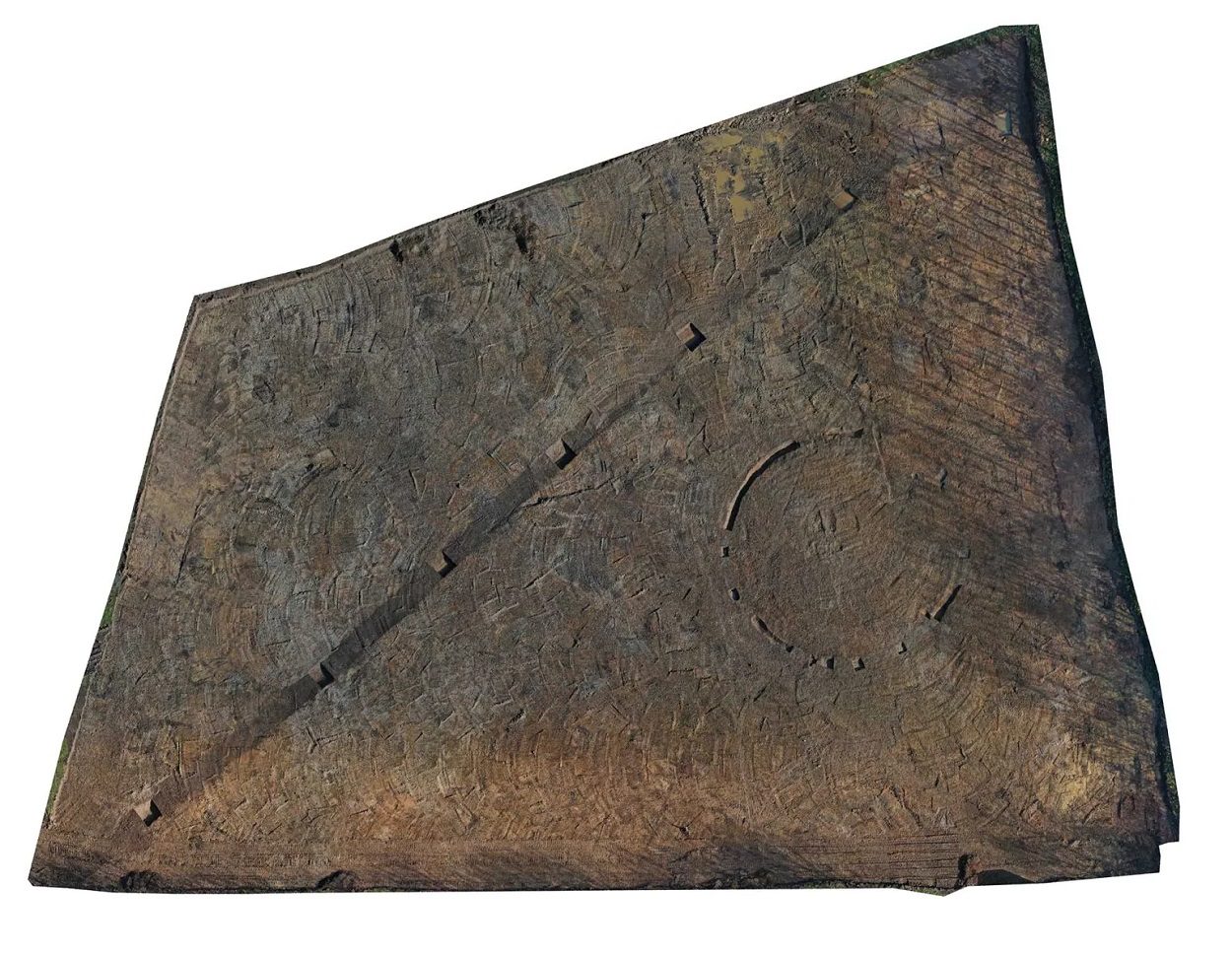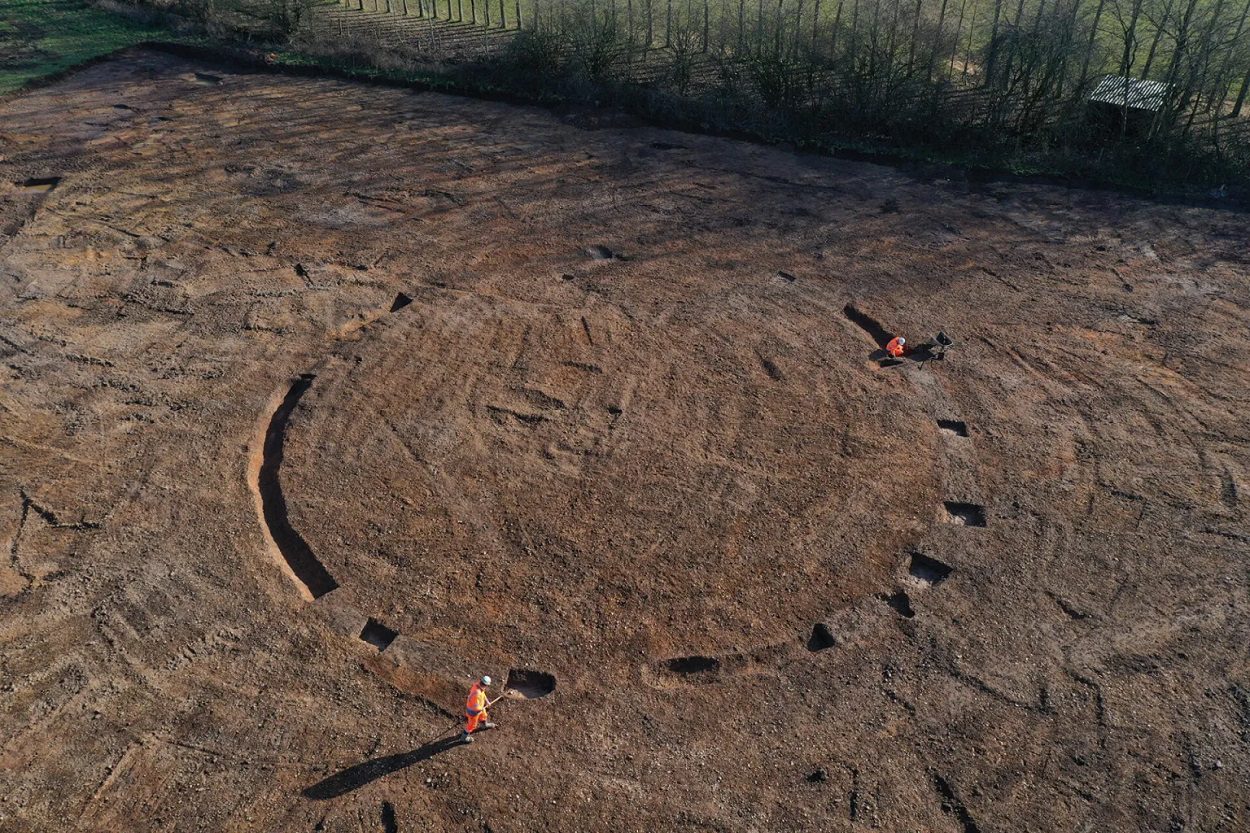Archaeologists from Pre-Construct Archaeology have uncovered an ancient ring ditch during development works of the Dove Valley Park in Derbyshire, England.
Evidence of archaeological features were first identified from cropmarks and aerial photographs, suggesting the presence of several ring ditches and linear ditches.
Excavations have confirmed the existence of the features through a process of trial trenches, where archaeologists conducted a strip, map and sample excavation to fully reveal and investigate the remains.
Ring ditches are typically a trench of circular or penannular plan cut into bedrock. The term is most often used as a generic description in cases where there is no clear evidence for the function of the site: for instance where it has been ploughed flat and is known only as a cropmark or a geophysical anomaly.

Excavations suggest that the ring ditch is prehistoric in origin, with a similar feature excavated in the vicinity during the 1990’s dating from the Bronze Age.
Archaeologists have interpreted the site as a stock enclosure, an ancient pound for the accommodation of livestock. The study has revealed a possible entrance to the enclosure, with evidence of re-cutting of the ring ditch that suggests maintenance of the site and possible longevity of use.
The long linear ditch is believed to be a post-medieval boundary for the demarcation of land, running west–east to the north of the ring ditch.
PCA archaeologists said: “These discoveries add to our understanding of the area’s rich history and provides fascinating insights into the way our ancestors lived and worked.”
Header Image Credit : Pre-Construct Archaeology





